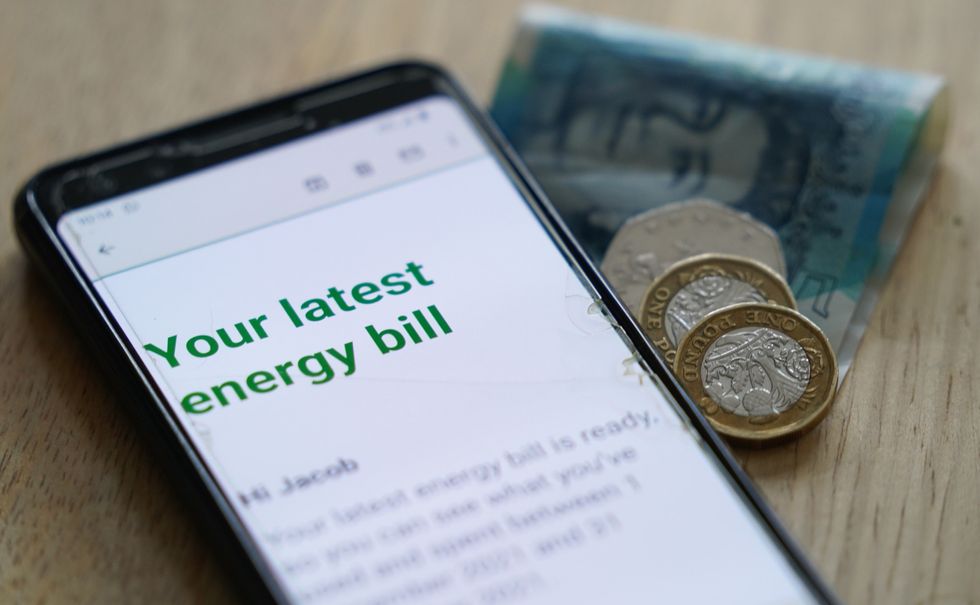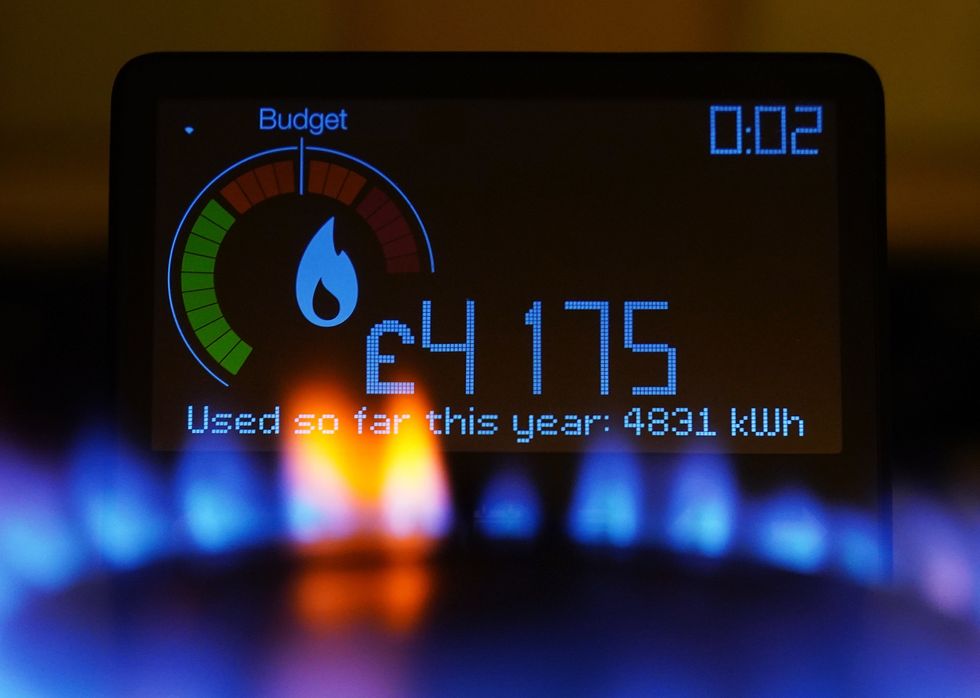
Energy bills are finally dropping but households need to take an urgent meter reading
PA
Millions of billpayers have just weeks to take urgent action ahead of price cap change
Don't Miss
Most Read
Trending on GB News
Households across Britain have just weeks to take a critical meter reading to ensure their energy bills drop.
Ofgem has announced that gas and electricity bills will soon be capped at a lower level, £2,074 a year.
It means families struggling with the cost of living will see a £426 annual saving from the current Energy Price Guarantee, which limits bills to £2,500.
But the energy regulator - which reviews the price cap every three months - has said it's important that all households take a meter reading on July 1, when the changes take place, to ensure that energy suppliers don't overcharge you based on an incorrect or outdated tariff.
If you think your bill isn't reflecting the lower rates from two weeks time, you can challenge it with your energy supplier but only if you have accurate and up-to-date data.
Experts stressed having an updated meter reading - and monitoring your bills closely - is the best way to ensure you're protected by the energy price cap, which has fallen from an all-time high of £4,279 at the beginning of the year.
Consultancy Group Cornwall Insights warned energy bills - which have surged at the same time food inflation has hot record highs - will remain high until at least 2030.

Most households will see a drop in their energy bill in the next few weeks
PA
It said: "Despite the cap falling from the sky-high prices of the past two years, the figure remains over £1,000 per year more than the price cap levels seen prior to the pandemic.
"We do not currently expect bills to return to pre-2020 levels before the end of the decade at the earliest."
Emily Seymour, Which? Energy Editor, added: "The news that the energy price cap will come down to £2,074 a year for the typical household from July is positive, but many will understandably be confused about what exactly this means for them and their monthly outgoings.
"While the new price cap on variable tariff rates will see typical bills drop by around £500, energy bills will be almost double the amount they were before the energy crisis began and these prices will still be unaffordable for many households.
"If you are concerned about struggling to pay higher bills, there is help available. Speak to your energy provider about a payment plan you can afford and check to see if you qualify for any government schemes."
The drop on July 1 is the first time households on default tariffs have seen prices fall since the worldwide energy crisis began more than 18 months ago, as Russia invaded Ukraine.

Energy bills have been dropping from record highs at the start of 2023
PA
The energy price cap sets a limit on the amount suppliers can charge for each unit of gas and electricity. But it isn't a cap on how much you can be charged for energy - so if you use more you will stay face a higher bill.
Most energy customers paying by direct debit currently pay 10.31p per kilowatt hour (p/kWh) for gas, 33.21p/kWh for electricity as well as a standing charge of 29.11p per day for gas and 52.97p per day for electricity.
From July 1, those prices will change to 8p per kilowatt hour (p/kWh) for gas, 30p/kWh for electricity although the standing charges will remain the same.
Householders who don't pay by direct debit will pay slightly more although prepayment meter customers will be charged the same rates.
Last week MPs slammed the Government for failing to help people struggling with energy bills quickly enough. The Public Accounts Committee (PAC) said 1.7 million people were left waiting months for help due to the Government’s “lack of bandwidth” to ensure all groups – including those who were vulnerable – received support at the same time.
Chairwoman Meg Hillier said: “The surge in energy prices has caused serious difficulties and hardship for households across the UK.
“It is of course welcome to see Government moving quickly to put in place support for both households and businesses to keep the lights on. But many of those who most needed help were kept waiting longest for it. For some households, every day left without support presented impossible choices.
“Almost halfway through the year we have not yet seen plans to ensure energy affordability for the coming winter. "As a matter of urgency Government must show it’s clear not just on how households and businesses will be protected in any future price rises, but how to ensure resilience in the sector as a whole.”







